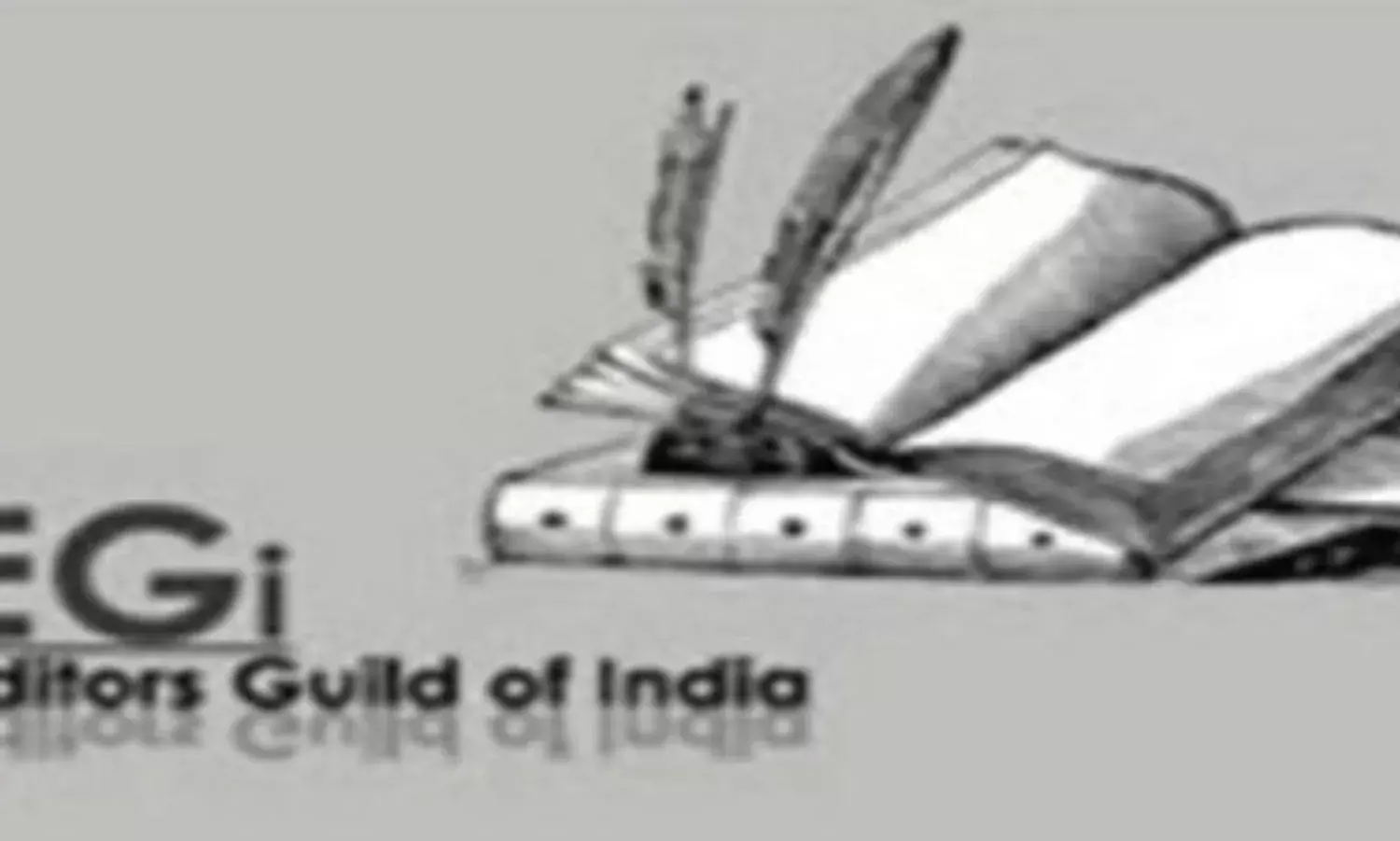Editors Guild of India: Seasoned Editors Clutch Their Pearls, Reach for Smelling Salts And Defy Consensus
The 'chief of bureau' of the BJP directs media attention towards a strict superficiality

NEW DELHI: He was referred to in hushed tones as “bureau chief” within the BJP, for his ability to massage the day’s news agenda and burnish his own image with discrete calls to newsroom heads. Empowered by a five-year tenure in the cabinet when he has seen the media function largely as a docile plaything, Union Finance Minister Arun Jaitley now plays out his influence game under the full glare of the social media.
Jaitley’s response to a parliamentary debate on the Rafale fighter jets deal with France, focused less on allegations of serious corruption, than Congress president Rahul Gandhi’s lineage, and the ostensible burden he carried from the real and imagined sins of his ancestors. The defence of an indefensible position would not have passed muster were it not for the deft manoeuvre that followed, to ensure that media attention would wander towards a strict superficiality.
In the course of his intervention in the debate, Rahul Gandhi had referred to the government’s successful evasion through its tenure, of any manner of public oversight. There was indeed an aversion to accountability, he suggested, best represented in Prime Minister Narendra Modi’s reluctance to subject himself to media queries, except when the journalists involved were “pliable”.
By the standards used by the Prime Minister himself in the course of the impugned interview with Asia News International editor Smita Prakash, “pliable” was a rather mild epithet to fling at the media. The interview itself was widely read as setting the themes for the BJP’s campaign for another term in office. Through rife with questionable assertions – for instance, on the prior warnings issued before the axe of demonetisation fell, and the supposed contrasts between the Triple Talaq and Sabarimala judgments of the Supreme Court – Prime Minister Modi was spared even the most cursory challenge through the interview.
There was little in what Rahul Gandhi said, that has not been widely remarked upon through the entire Modi premiership. For one who used the media with consummate skill to stake his claim for high elected office, Prime Minister Modi has been curiously reticent about facing any manner of interrogation since winning.
Arun Jaitley though was not one to allow these minor matters to dilute his sense of confected outrage. Taking to Twitter he asked: “Why are the pseudo liberals silent? Waiting for the Editors Guild’s response”. He followed up with a reference to Rahul Gandhi’s ancestry: “The grandson of the ‘Emergency Dictator’ displays his real DNA – attacks and intimidates an independent Editor”.
What Jaitley demanded, the Editors’ Guild president Shekhar Gupta delivered with alacrity. In its express delivery of an admonition, the Guild deprecated the “labelling of journalists” and deplored the growing tendency of “the establishment to discredit, delegitimize and intimidate them”.
To deflect any possible charge of partisanship, it then proceeded to list out a catalogue of unflattering epithets flung at media practitioners by all sides of the political spectrum in the recent past.
For a membership body that is bound by rules of consensus, or at the minimum, by a requirement of seeking out majority opinion before a public intervention, the Guild seemed to have rushed in with unseemly haste. Certain among the members of the body soon went public with their dissent.
The spectacle of seasoned editors clutching their pearls and reaching for their smelling salts at the rather mild term used by the Congress president, highlighted a certain selectivity in perceptions. It also underlined exactly the point that Rahul Gandhi made, about the “pliability” of certain journalists.
The Guild has often maintained a mysterious silence when it should have spoken, and rushed in when it would have been better advised to hold its counsel.
The Guild has spoken up against the imprisonment of journalists in Myanmar for alleged violations of the Official Secrets Act, a colonial relic that India and other legatees of the British raj retain on their statute books with obviously repressive intent. But when a journalist in Manipur was arrested under the draconian National Security Act for an expletive laden rant against the imposition of cultural practices from the Hindi belt, it remained silent.
The Guild similarly spoke up when an editor based in Kolkata, Suman Chattopadhyay, was arrested on charges of involvement in a Ponzi scheme that defrauded several thousands of their savings. It did not seem to have the discernment to tell where an individual’s journalistic persona shades over into activities against the public interest.
The Guild remained silent and indecisive when sexual harassment allegations surfaced against the journalist turned politician M.J. Akbar. It was at pains to distance itself from any possibility of guilt by association, terming Akbar an “inactive member”. It only made bold to suspend Akbar’s membership after agonising for long and referring his matter to an internal sub-committee.
To say that media practice is in crisis because of technological transformations, and an erosion of older ethical norms, is a commonplace. That sense of siege is aggravated by media leaders who seem increasingly to be looking out for themselves, with scant regard for the higher professional principles.



